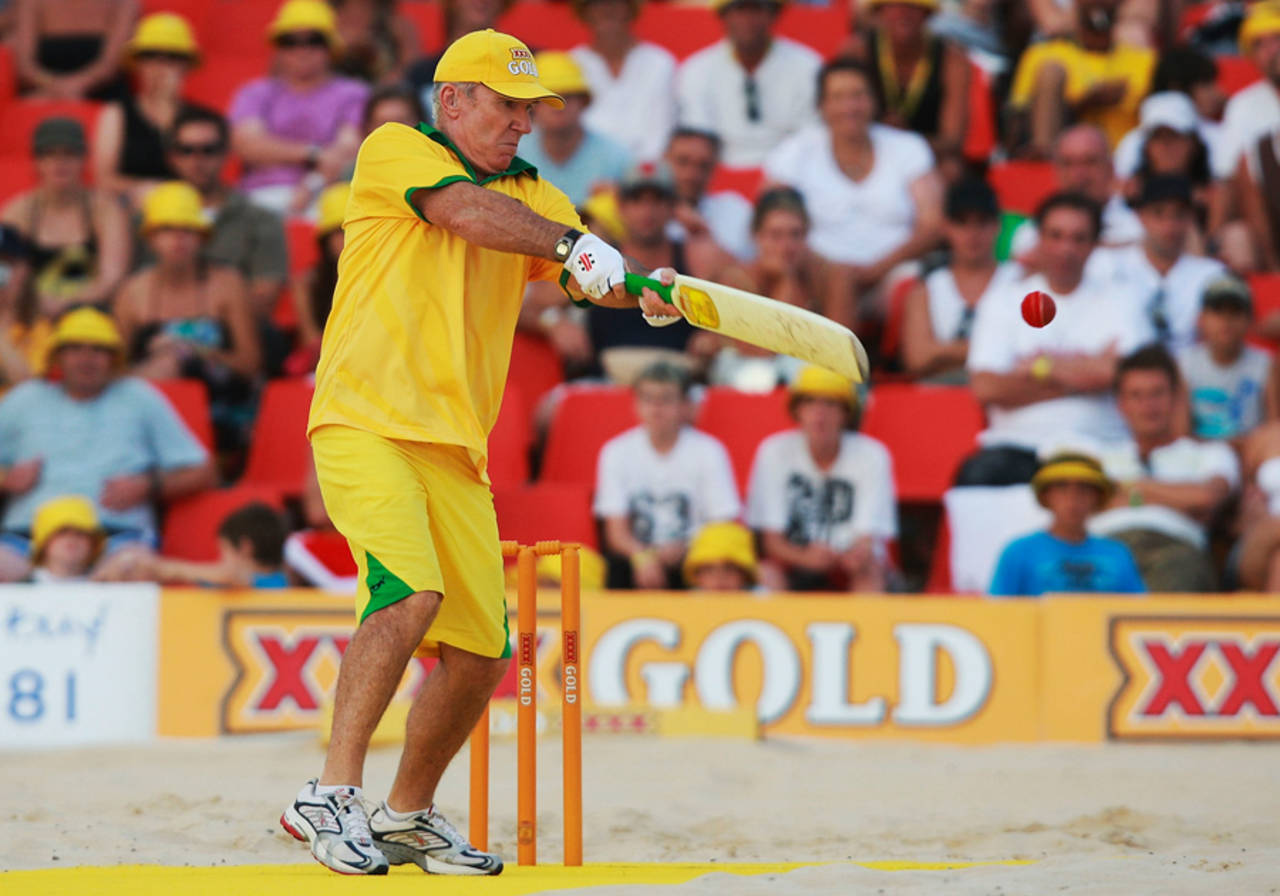The sportsman's cliff
What must it be like to face your mortality just when your peers in other fields are beginning to excel in their professions?
Jon Hotten
30-Jul-2013

In sport, unlike in other professions, greater experience counts for only a short while • Getty Images
I saw Jeff Thomson and Rodney Hogg open the bowling for Australia the other day. It happened at glorious Wormsley, the ground built by John Paul Getty and set deep on his estate in the rolling Chilterns outside Wycombe. It's a magical place, where a thatched pavilion overlooks a perfect oval, surrounded by steep and wooded hillsides from which giant red kites fly out and soar overhead. The game was an Ashes tussle of sorts: England legends versus Australian legends for the benefit of the PCA.
Australia were captained once more by Kim Hughes, still golden but no longer a boy, and if not as comfortably rotund as Merv Hughes, certainly giving the amply padded Hogg a run for his money. The years have also been kind to Greg Matthews, still jaunty and spiky and fun, albeit in a larger shirt size, and Tom Moody, guardsman- straight and as powerful as ever.
England, who seem set on gaining any advantage over the old enemy that they can these days, arrayed a far younger and more serious side, at least in terms of their batsmen. Opening up was Andrew Strauss, retired less than a year from Test match cricket, and at No. 3 came Mark Ramprakash, 100 first-class hundreds fresh from his blade and the singular look of the professional sportsman still in his eyes.
Thommo is 62 now and with tortured knees, but he is still a showman and knows what the crowd have come to see. He opened the bowling from a one-pace run. The arm arced back for that javelin thrower's turn, and the new white ball went down at a pace that the average club player might encounter on a Sunday afternoon. Strauss leaned forwards onto the first couple and then drove the next almost apologetically down the ground to the sightscreen. He had the time not just to execute the shot in apparent slow-motion but to have unbuckled his pads and put them back on again as he waited.
Later, Ramprakash played one extraordinary stroke from the bowling of Matthews, a lofted extra cover drive struck off the back foot with a straight bat that carried to within a yard of the boundary, a small miracle of timing and imagination. Both he and Strauss made half-centuries before engineering gentlemanly dismissals.
In came Paul Nixon, who last played professional cricket in 2011, and Matt Maynard, who retired in 2005. The struck the ball powerfully too, but there were some small differences. They took longer to get going, and not everything they did had the precision that it once had.
It was fun to watch. England's attack featured Darren Gough, Devon Malcolm, Gladstone Small, Phil DeFreitas and Phil Tufnell. As with the Australian bowlers, their actions and mannerisms were deeply familiar simulcrums of something now passed. Here, at Wormsley, were lessons not just about time but about the cliff from which the professional cricketer steps once he finishes playing.
In most aspects of life, experience makes us better at what we do - or at least it should. Everyone wants that experienced pilot to be at the controls of the jumbo jet; if we have to go under the knife, we want a surgeon who has seen it all before. Almost uniquely, the sportsman must encounter the eroding of his ability at the precise time that his contemporaries in other professions are getting really good.
What the legends match showed was how steep the decline can be. The skills of Ramprakash and Strauss were still far sharper than everyone else's: it told in what they could do and how much time they had to do it. Their future, though, was all around them. As they spend more time away from the centre of the game so the ghost of what they were will appear.
It must be hard to confront the cliff. In fact, lots choose not to: they have had their fill and no longer play. It may be easier to keep the younger self in the imagination when it's not encroached upon by reality.
There are consolations, of course. It was a perfect afternoon at Wormsley, and the crowd and the weather were warm. The players toured the boundary edge, having their photographs taken, sharing drinks and smiles and memories. Their achievements have offered them a long afterlife, and the further away they get from their playing days, the easier it must become to accept that what they had was on loan, a gift given fleetingly and then taken back forever.